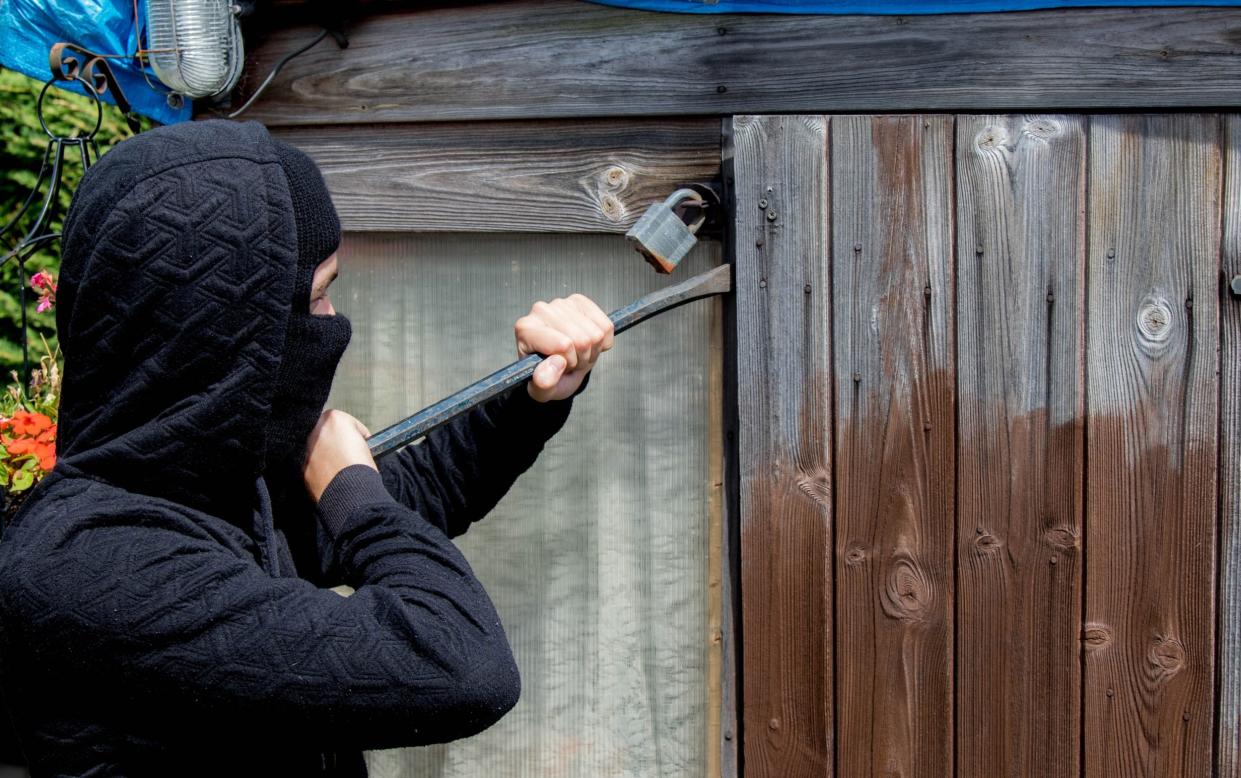Police now attending every home burglary … but there’s a catch

Police will not have to attend up to a fifth of domestic burglaries under new rules aimed at boosting detection and charging rates for break-ins.
All 43 chief constables in England and Wales announced on Thursday that they are now attending every home burglary for the first time after pledging to do so last autumn.
They say there are already indications that it has improved detection and charging rates, which are up from around 4.2 per cent to 4.5 per cent in the last quarter of 2022.
However, the pledge does not cover thefts from householders’ outbuildings, garages and sheds, where police officers are only likely to attend if there is an emergency threat to a homeowner’s life or safety, or there are potential lines of inquiry.
It also emerged on Thursday that burglary victims will be asked to use their phone cameras to scour crime scenes for evidence before forensic experts decide whether to dust for prints in person, for example.
Deputy chief constable Alex Franklin-Smith, the National Police Chiefs’ Council lead for burglary, said: “The policy that all chiefs signed up to is 100 per cent attendance at all home burglaries but if it’s an outbuilding the policy doesn’t apply to that.”
Home burglary investigations prioritised
According to Churchill Home Insurance, around a fifth of all burglary reports are for thefts of contents from outbuildings, thousands of which have been converted into private offices as more householders work from home post-lockdown.
Garages accounted for 50 per cent of the thefts, sheds 37 per cent and bike sheds eight per cent.
In the three years to 2021, there were 70,000 such thefts, equivalent to 64 a day, according to the insurer.
Some police officers also fear the exclusion of outbuildings could lead to the public getting a “poorer service”, as many seasoned thieves target them first to obtain the tools they need for break-ins.
If downgraded, they said it could mean police missing opportunities to gather evidence that could catch burglars.
The Home Office has also sanctioned a change in the way burglaries are recorded so that all domestic break-ins will now be divided into those from outbuildings, and those in homes, when the data is published.
It will make comparisons with previous years impossible, when the figures were combined, and are likely to automatically boost detection and charging rates for home burglaries when they are published for the first time.
Mr Franklin-Smith said: “We’re not saying that we think outbuilding burglaries are hugely less important.
“What we are recognising is that the burglary of a home is far more invasive and we’re prioritising that because that’s where people live and reside.
“There is always a risk of harm to individuals if burglaries are carried out and individuals are there.
“We haven’t got an infinite amount of resources so we can’t say we’re going to attend absolutely everything because there’s a consequence then.
“This is about having a smarter approach and prioritising our resources accordingly based on the degree of harm.
“Forces will still clearly assess the call that comes in and if there are lines of inquiry or an emergency, then they still would seek to attend outbuildings.”
The moves follow criticism of police for failing to prioritise burglary, with proportion of offences resulting in a charge falling from 6.7 per cent in 2016 to 3.9 per cent last year.
The Telegraph revealed this week that police had failed to solve a single burglary in neighbourhoods in half of England and Wales in the past three years.
Mr Franklin-Smith said new guidelines to be issued in the next four weeks would set minimum standards for burglary investigations so, for example, call handlers would ask the “right” questions to garner suspects’ descriptions and car registration numbers.
He said police aimed to “move back” to traditional crime scene investigations, although this could initially involve burglary victims being asked to walk around and film the property with their smartphone camera under the direction of a CSI investigator to look for evidence and clues.
If they do identify things of interest, an investigator would attend the property to capture that evidence.
This would be on top of an officer, most likely from a local patrol, attending the property.
“Again it is about trying to do it in a more efficient and effective manner,” added Mr Franklin-Smith.
The guidance will recommend that officers should aim to attend a burglary within the so-called “golden hour” when evidence is fresh and suspects could still be nearby.
Any emergency where a thief threatened safety would get an immediate 999 response.
But Mr Franklin-Smith acknowledged pressures on police to also attend other life-threatening emergency calls would mean that other burglaries could normally expect to be visited within four hours.

 Yahoo News
Yahoo News 
